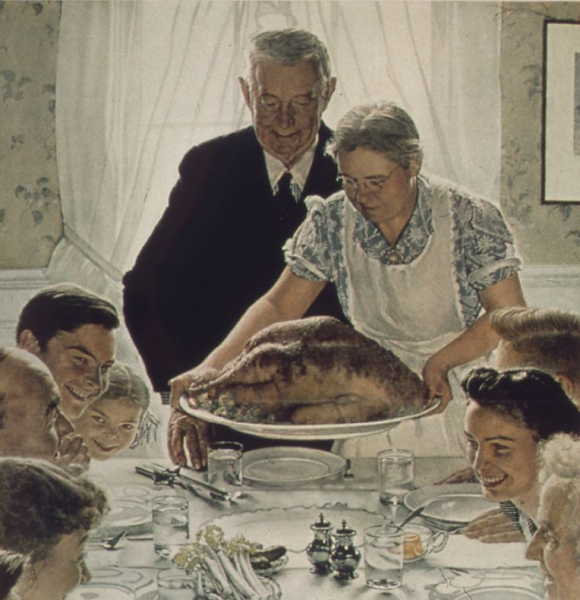
As we prepare for Thanksgiving, many people look forward to sharing a warm meal with their family and friends. Others dread the holiday, gearing up to argue with their relatives or answer nosey questions. TSP has written about the political minefield that holiday meals can be in the past. This year we want to point out that the roots of difficult dinners actually run deep in everyday family mealtime. Thanksgiving, like any family mealtime, has the potential for conflict.
Scholars have documented how important meal time can be for families in terms of cultivating relationships and family intimacy. However, they also show that despite widespread belief that families should share “happy meals” together, meals can be emotionally painful and difficult for some families and family members.
- Ann Meier and Kelly Musick. 2014. “Variation in Associations Between Family Dinners and Adolescent Well‐Being.” Journal of Marriage and Family 76(1):13–23.
- Richard Wilk. 2010. “Power at the Table: Food Fights and Happy Meals.” Cultural Studies ↔ Critical Methodologies 10(6):428–36.
Disagreements between parents and children arise at mealtime, in part, because of the meal itself. Some caregivers go to battle with “picky eaters.” Migrant parents struggle to pass cultural food traditions to children born in the United States. Low income parents worry that their children will not like or eat the food they can afford.
- Jayne A. Fulkerson, Mary Story, Dianne Neumark-Sztainer, and Sarah Rydell. 2008. “Family Meals: Perceptions of Benefits and Challenges among Parents of 8- to 10-Year-Old Children.” Journal of the American Dietetic Association 108(4):706–9.
- Sarah Bowen, Joslyn Brenton, and Sinikka Elliott. 2019. Pressure Cooker: Why Home Cooking Won’t Solve Our Problems and What We Can Do about It. New York, NY: Oxford University Press.
Family meals also reproduce conflict between heterosexual partners. Buying, preparing, and serving food are important ways that women fulfill gendered expectations. At family meal-times men continue to do less work but hold more power about how and when dinner is served.
- Marjorie L. DeVault, 1991. Feeding the Family: The Social Organization of Caring as Gendered Work. Chicago: University of Chicago Press.
- Kate Cairns and Josée Johnston. 2015. Food and Femininity. London; New York: Bloomsbury Publishing.

Comments 2
Ilse G. Miller — November 14, 2019
WOW! I've never taken a sociology class, but this makes sense. I've never thought about it this way! We do seem to put a lot of pressure on ourself to make make meals live up to our expectations....
Kristin Gehring — November 14, 2019
This is delightfully clear. I now know just what to expect from each group of articles. We need more summaries like this one!